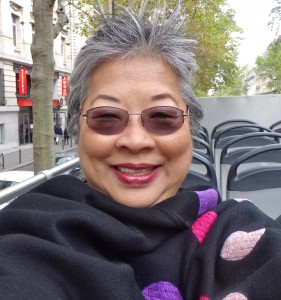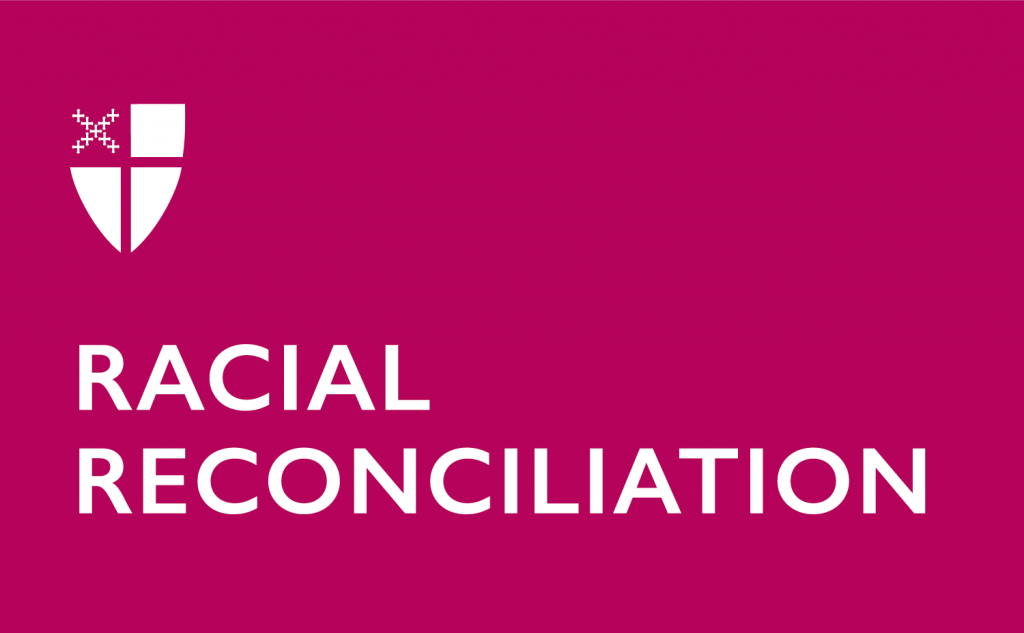If I Say “It’s Racist,” Will You Still Be My Friend?
White Privilege From an Asian-American Woman’s Point of View
October 4, 2013
By: Lelanda Lee
I had been friends with Lacy for almost seven years. We volunteered together at church. Our favorite thing was going out to dinner after a meeting, which happened almost weekly. We both had grown children with troubled marriages. Our husbands worked out of town a lot. Our birthdates are within a year of each other’s. We both grew up poor, she in the country, and I in the city. We traveled together on women’s retreats. We felt so close that we often joked we were really sisters separated at birth by genetics. She is a beautiful blue-eyed blond, and I am 100% Chinese.
Over the years in various meetings, I had heard Lacy say, “It’s like Chinese water torture,” to describe the same bad behavior being repeated in different settings. Each time Lacy said it, I would cringe inside and go home and ruminate for a week or longer, because her saying “Chinese water torture” just didn’t feel right in my gut. In the seventh year of our friendship, Lacy and I were having dinner in a restaurant, reconnecting after busy periods at work. I can’t remember what Lacy was talking about, but the words “Chinese water torture” came out of her mouth, and this time, something happened. This time I said, “You know, Lacy, saying, ‘Chinese water torture’ is racist, and it hurts me every time I hear you say it.”
Lacy put her fork down. Tears welled up in her eyes. Silence.
An oasis of absolute silence filled the middle of the busy chain restaurant. And I felt the need to say something to make my friend feel better. So, I said, “Lacy, I didn’t mean to hurt you by calling you on saying ‘Chinese water torture.’ I know you didn’t mean to be racist by saying it.”
By then, Lacy, who is a very competent woman with experience handling difficult people, responded in her own defense. “Well, I didn’t think saying ‘Chinese water torture’ is racist, because, you know, it’s historical, and since it’s based on history, it’s not racist. ‘Chinese water torture’ describes the way the Chinese used to torture people. Drip, drip, drip … they dripped water on people’s foreheads until it drove them crazy.”
Feeling like I was having an out of body experience, I replied, “I don’t think the Chinese ever tortured people that way. I don’t think it’s historical or factual.”
We managed to get through the rest of dinner. Both of us acknowledged that it was not our intent to hurt the other. Even though she didn’t think it was racist, Lacy said that she would stop saying “Chinese water torture” now that she knew it hurt me. I felt the need to make some offering. So I apologized again to Lacy for making her feel baldly, and I said, “I hope this doesn’t hurt our friendship.”
That evening at home I researched “Chinese water torture” online and learned that the torture method described by that phrase originated under a different name with an Italian lawyer of the sixteenth century. There is no historical evidence the Chinese or any other Asians ever tortured people that way. “Chines water torture” probably came into popular parlance around 1913 when Harry Houdini performed an escape trick known as the “Chinese water torture cell” in which he was bound and placed upside down in a glass and steel chamber filled to overflowing with water. It is likely that the phrase “Chinese water torture” found its way into the vernacular in the same timeframe, around World War I, that terms like “Chinese fire drill,” “Chinese ace,” and “Chinese navy” appeared, connoting disorganized, chaotic, and bumbling, and foreign, mysterious, and devious, all pejoratives applied to the name of people from China.
I sent Lacy a copy of my research that same evening by email, and subsequently, I’ve sent her a few other emails informing her of events and extending condolences when her sister-in-law died. I saw her in church one Sunday, and we commiserated briefly about how overly busy our lives are. Her little granddaughter hugged my legs. I hugged Lacy.
Today, many weeks later, I don’t know if my best girlfriend is still my best girlfriend. And I don’t know how to reach out to her to pick up where we left off without my having to apologize again, without my having to take responsibility for making my White girlfriend feel badly because she said a racist thing, and without my having to take responsibility for making my White girlfriend feel better because her image of herself as a non-racist is tarnished.
As a Person of Color I have been most deeply hurt by those whites whom I count as friends and allies, such as, my husband, best girlfriend, my colleague working on Anti-Racism, and my boss and mentor. The reason I name these hurts as the deepest is because they come unexpectedly and surprisingly from those whom I had hoped would “know better” than to say the hurtful thing or to hold the hurtful prejudice or stereotype. After all, these are highly educated and spiritual people with good morals and ethics. These are people who love and esteem me. These hurts cut deeply because of the difficulty on my part of “calling out” this hurtful behavior with these White people who think of themselves as “beyond” these prejudices and stereotypes.
A question that People of Color often ask when we are together is “Why don’t Whites just get it?” Is it possible for Whites to know better? I think the answer is Yes, No and Maybe.
Yes, Whites can know better about how to behave in racially and culturally sensitive ways if they have been educated in anti-racist behavior and if they continue to learn, to be self-reflective, to be open to correction, and to make amends when they act in racist ways. If Whites are serious about embracing ant-racist behavior, then they must embrace the understanding that injustice against one diminishes all as co-inhabitants of this interrelated planet. Racist behavior leaves a stain on the perpetrator that is as ugly as the injustice experienced by those oppressed by racism.
No, Whites cannot know better than to hold the hurtful prejudice or stereotype, because they are steeped in the privileges afforded by being part of the dominant culture in this country. You don’t have to do anything more than be born with White skin to have privilege. Privilege is its own reward. Privilege means never having to say you’re sorry, even when you’re behaving in a racist way. Privilege begets privilege. Privilege means expecting others to say they’re sorry when they’ve pointed out to you that you’re behaving in a racist way. Privilege means you can feel that you’re right even when you’re in the wrong. Privilege makes you the one who’s okay.
Maybe, Whites can know better than to behave in racist ways when they ally with People of Color, and together, we can strive to understand what underlies what we say and how we behave. You cannot assume knowledge of another person’s motivation for their behavior. To get to understanding requires a whole lot of steps beginning with a curiosity to know the other or, a ratchet up, a desire to know the other. Getting to know the other requires patient listening, an open attitude of observing, a willingness to be taught, a willingness to be led, a vulnerability to ask questions in order to learn more, a thick skin to withstand hurt feeling – your own and the other’s – and finally, the fortitude to stick with it for an extended time, for a long, long, time, for our lifetime.
Let’s not stop with knowing better. Let’s not stop with just getting it. What about doing better? Behaving better? What about stopping the racist behavior? What about calling other White people out when they are being racist? What about enforcing the civil rights laws? Dismantling the racist institutions? What about giving up some of your White privilege? Doing away with the Good Ol’ Boys Clubs? Making amends? Giving reparations?
My hope for White anti-racism activists is that you intentionally maintain an attitude of openness and listening in order to hold a space for People of Color so that we can “call out” hurtful racist behavior. I want my White anti-racist allies to take particular responsibility and demonstrate initiative for “calling out” the racist behavior of other Whites, even at the risk of ostracization, reprimand or retribution, and especially to do so when a Person of Color is in the midst of the scenario, feeling alone and victimized. You will not always know when a Person of Color feels isolated and vulnerable, because People of Color are often polite even as we are being victimized. Retreating into good manners, because good manners indicates good breeding (i.e., good breeding is not “as colored”), is a protective shell we put on.
In my mind, as a Person of Color, it is a “White Privilege” to be involved in a movement that address White Privilege. Yes, White Privilege must be addressed in the overall panorama of addressing racial justice, but let’s not get stuck there, because it is absolutely necessary that we get to the work of redressing the wrongs of racism and affirmatively raise up People of Color to share the opportunities, responsibilities and benefits of this society. In other words, we must remember to focus a sufficient proportion of our energies, psyches, and economic and other resources to address the fruits of racism, which include redlining, gerrymandering, abysmal inner-city schools, discrimination against immigrants, an unjust justice system, unequal access to healthcare and employment, misogynistic laws, etc.
In terms of group dynamics among anti-racist activists I see an ongoing challenge in how to maintain a generative level of tension between masterful organizing led by Whites and the raising up of Leaders of Color who may not have had equal opportunities to develop their (mainstream dominant culture) leadership skills and knowledge to the same level of mastery as achieved by Whites. The reality is that in so many group dynamics, neither invitation nor accommodation has been extended to include multicultural ways of getting things done. While it is important from a task-results viewpoint to do things at an excellent level, it is also important to value the content and ideas that are not cloaked in masterful or sophisticated (mainstream dominant culture) style and to resist the impulse to “improve” those contributions. This is where honesty on the part of both Whites and People of Color is necessary to prevent the conversation from being “hijacked” by either group. Everyone who participates has to be willing to risk being hurt and being one who hurts others by speaking truth. It is only by speaking truth that we can move closer to the ideal of our highest humanity to each other. One can never be sorry about telling the truth, even if you lose your best friend.

Lelanda Lee is a writer, poet, and church and community leader, who lives in northern Colorado with her ohana, consisting of her husband, mother, brother, and her boss, Devon Rex cat Tinkerbell. Raised in a refugee-immigrant Asian family in Detroit, Michigan, Lelanda was shaped by Motown, Rock ‘n Roll, and the Civil Rights and Women’s Movements of the ’60s. Baptized and confirmed in the Missouri Synod Lutheran Church, Lelanda found the Episcopal Church in Amarillo, Texas, in the mid ’90s, when she attended the Episcopal day school’s children’s chapel to check out the propaganda her 9-year old daughter was receiving weekly. Lelanda continues her journey with the Episcopal Church while also thinking about the concoction of humanity’s longings and foibles – how desire, envy, and loss become the heartbeat of the people.
(Reprinted with permission. © Lelanda Lee, September 2007)

